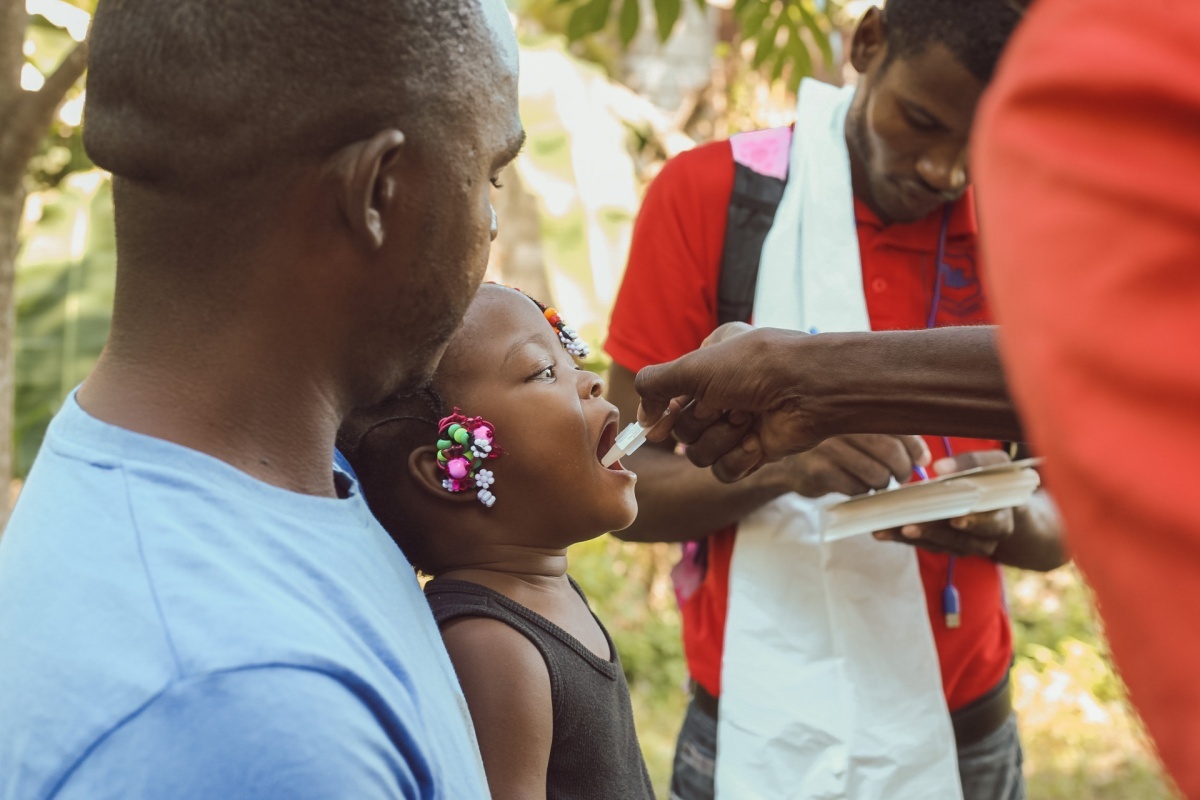During Haiti’s Strife, PIH Hospital Becomes a Lifeline
A perilous cholera outbreak in remote community leads to medical outreach, care, and support
Posted on Mar 28, 2023

Since October 2022, Haiti has faced escalating violence, gang wars, scarcity of gasoline and political unrest. On top of that, there’s been a nationwide cholera epidemic with more than 26,000 suspected cases of the water-borne illness reported across the country.
Last month, residents of Borneau, to the east of the capital of Port-au-Prince, faced a particularly perilous situation* when a cholera outbreak emerged, sickening dozens in days. For several months, they had been at the center of a civil war between armed groups fighting over the territories surrounding their small community. Essentially trapped during the conflict, the people of Borneau experienced great difficulty accessing health care. There is a single route to reach the Hôpital Universitaire de Mirebalais (HUM), which is the only area hospital that can provide them with adequate care and is supported by Zanmi Lasante [ZL], as PIH is known in Haiti.
Several people arrived at the hospital in January with symptoms suggesting cholera, including severe diarrhea and vomiting. Shortly after, five deaths occurred in the community. Initially, HUM received 24 patients seriously ill and suffering from dehydration, all from Borneau. The following day, 27 new severely ill patients, also from Borneau, were hospitalized.
In less than a week, HUM received and treated more than 100 Borneau patients suffering from cholera.
“In Borneau there is no medical structure. There is only a community network, which includes a few health workers who do not have the materials to treat the population. They only have their knowledge,” says Dr. Jean Joel Manassé, chief internal medicine physician at HUM and the head of ZL’s clinical cholera response.
A Coordinated Cholera Response
ZL's strategy since the resurgence of cholera includes providing care and support to the sick and public health educations in communities. Thus, in partnership with others, such as the Ministry of Public Health and Population and Haiti’s National Water and Sanitation Agency, ZL has been able to quickly set up equipment and personnel to help reduce the burden of cholera in its various sites. According to Manassé, an important aspect of ZL's response has been to work with community leaders and organizations to raise awareness about hygiene and healthy behavior change.
In Borneau, ZL’s medical staff and community health workers initiated activities to raise awareness among community members and especially community leaders on key issues such as hygiene and sanitation but also on the need to accompany people with symptoms to the hospital.
“We quickly understood that we had to bring the care closer to the population,” says Manassé. “So, we operated a treatment point on their route to start treating the sick before they arrive at HUM. This has allowed us to reduce the time taken for treatment and also to alleviate transport costs in order to relieve the victims and their families. Thus, they do not wait for a state of total despair in order to seek care.”
As of last month, ZL had established 13 cholera treatment sites across 11 cities in order to take care of those affected, including the site near Borneau. Thus, 5,581 patients have been treated and 73,348 vaccines were administered since October 2022. [tk: month/year when response began].
However, ZL still needs to strengthen community response with personnel, products, medicines, and materials, administrators said.
“Today the problem is in Borneau,” Manassé added. “Tomorrow, it could be a completely different locality. I believe that with the strategies we have put in place, we will relieve those who really need it.”
*This story has been edited and condensed; its original version can be found in English on the Zanmi Lasante website.

